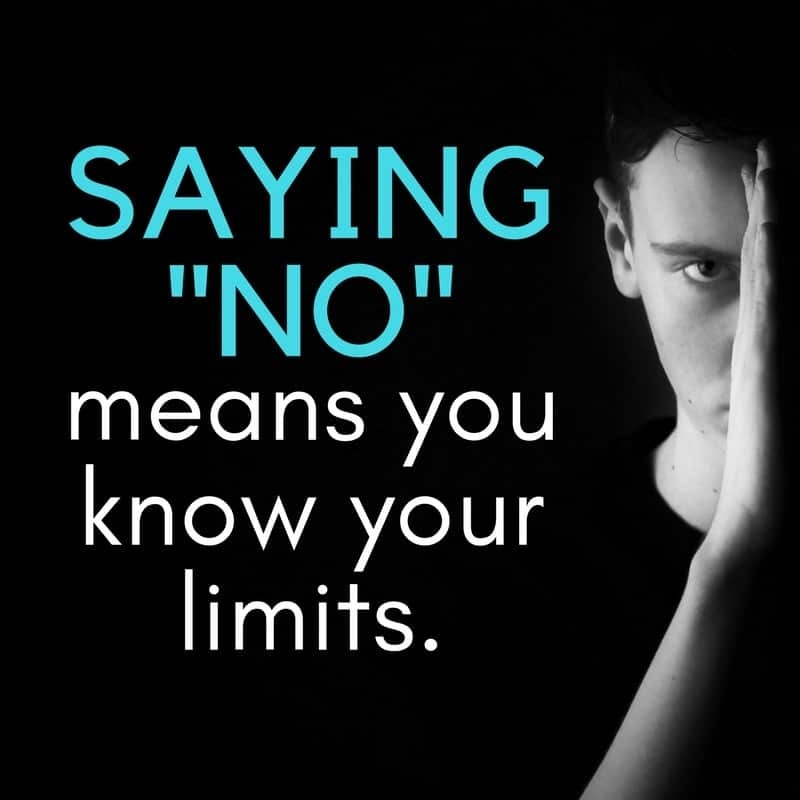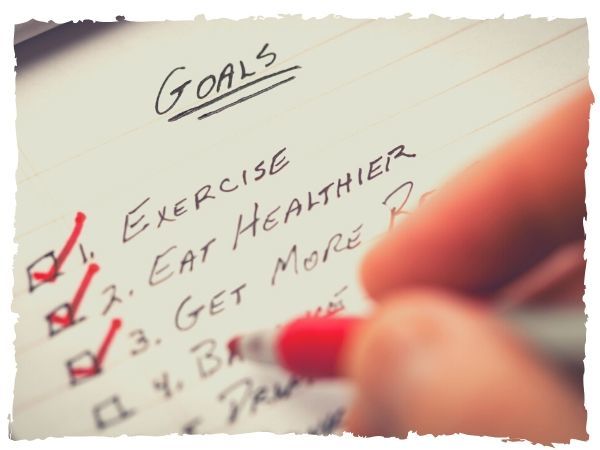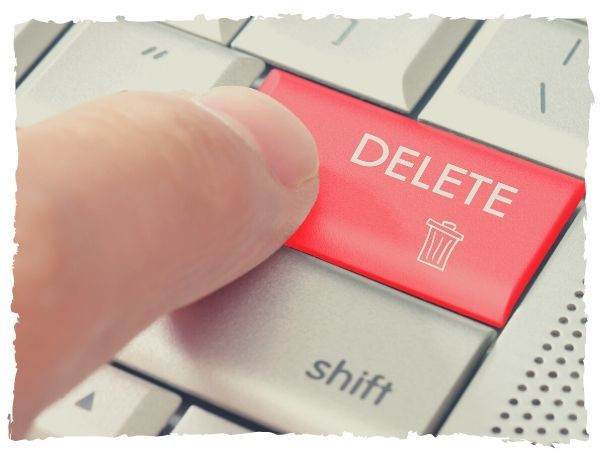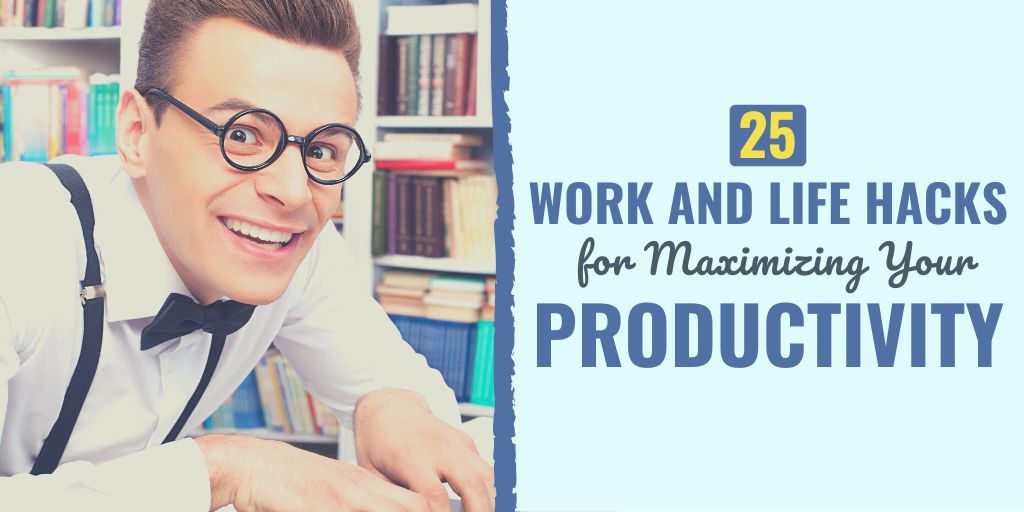At the end of your workday, do you ever feel like you could’ve done more?
Maybe written more words. Completed more tasks. Or simply just did more work.
And does it leave you feeling a little… incomplete? Like you’ve wasted your day?
…Sound familiar?
Well, it doesn’t have to be this way.
You can leave work feeling satisfied and fulfilled with what you’ve accomplished, and all it’ll take are a few “productivity hacks” to get you there.
You don’t know the “hacks” for success.
You probably know a productivity tip or two, am I right? Sure you do, we all learn enough to get by in life because as long as something works we’re willing to use it.
But this also means we restrict ourselves to old tactics, even if they turn out to be sub-optimal.
You never cared to upgrade your methods.
And since we usually stick with the same old tactics, we stop the search for better ones. We don’t modify or seek improvement, because what we already do is “good enough.”
Improve your productivity with these work ad life hacks.
But I’m guessing you want to do more than just “get by,” right? You won't feel like you’ve actually accomplished something each day. You want to feel “complete.”
Well, this is where you can learn how.
Use these 25 productivity hacks and you’ll elevate your ability to get things done starting TODAY.
1. Use the Pomodoro Technique
I’m sure many of you have heard of this productivity hack, but how exactly does it supercharge your productivity?
The magic happens after repeated usage. Once this hack becomes a habit, your ability to focus during the duration of the timer is 10x better. That’s why this tactic is so powerful, it uses conditioning to put you in the zone instantly.
And since concentration is half of the productivity battle (the other half is actually starting to work), this tool is an incredibly powerful hack to add to your arsenal.
Check out this video that explores how the Pomodoro technique can help you become hyper-focused on important tasks.
2. Write Down Your Three Most Important Tasks (MITs)
You don’t want any ambiguity in your workdays, it’s a productivity killer.
Each morning you should take the time to prioritize the top three tasks for the day. Be clear with what you write and use more than a three-word description. (Read about other effective ways to prioritize tasks.)
For instance, “research hotels” is bad. Instead, use “review and compare prices of hotels x, y, & z.” This will prevent you from drifting to semi-related tasks that don’t actually accomplish anything.
The key thing about this habit is to start the day by focusing on tasks that are important (instead of urgent). You can find out which is which by using the Eisenhower decision-making matrix.
Separate your tasks into one of four categories:
Important tasks are ones that contribute to your immediate livelihood & long-term goals, while urgent tasks are ones that require immediate action or have incoming deadlines.
The idea is to focus on tasks in category #2 (important & not urgent), because by doing so you:
Doing this will keep you focused on only the most important tasks. It also minimizes the chances of your tasks going “critical,” preventing burnout by trying to catch up on an important task.
3. Set Specific Times to Check Email
It’s easy to waste time shuffling through dozens of emails.
All it takes is one email notification and, before you know it, you’ve wasted 20-30 minutes organizing and responding to multiple emails.
What you should do is choose two times a day to do emails. I recommend once before lunch and once more before finishing up your workday, that way it doesn’t accidentally seep into your work time.
4. Learn to Say “NO”
For some people saying no is hard, but if you really want to elevate your productivity levels then you can’t let people order you around all the time.
(Of course, the exception would be your boss, but I’ll show you how to handle them in a bit).
For most people, a firm “no, I’m busy right now. I’ll let you know if I’m available later” should suffice.
But if it’s your boss who’s taking up your time, here’s what you should do:
- Let them ask you to do a new task
- Say “I’d love to handle that, but could you please look at this?”
- Show them your task list
- Say “which of these tasks would you like to delay to make time for this one?”
- Wait for their response
This is about as close to “no” as you’re going to get with your boss, but what’s great is that it keeps a professional air about you as you do it, and it shows your boss that they can’t just drop new tasks on you without hurting another.
James Altucher explains this concept in detail in his wonderful book, The Power of NO.

5. Implement the Two-Minute Rule for Quick Tasks
It’s inevitable that small tasks will pop-up throughout your day, but you don’t want to waste time contemplating whether or not you should do them.
Instead, just ask yourself if you can complete the task in less than two minutes.
If the answer is yes, do it. You’ve only lost two minutes of your day.
If the answer is no, add the task to your to-do list (below your top three tasks for the day) and take care of it later.
To learn more about this simple (but powerful) concept, check out this video (and ironically, it'll take you less than two minutes to watch.):
6. Use Website Blockers for Distracting Content
There’s a lot of distracting websites out there that – while entertaining – ruin productivity for each of us.
Start using site blockers so that you can work without the constant threat of distracting websites. Just go to Google and type “your browser” and “site blocker,” you’ll easily find a great one to use.
To get started, here are three of the more popular site blockers:
You can also use productivity apps to help you stay focused on your tasks.
7. Listen to Productive Music (or Sounds)
Music is a great way to maintain focus and stay productive.
However, everybody is different so it may take some experimentation to find music that helps you focus. A good tool for this is Focus At Will, it uses music scientifically driven to improve your concentration.
You could also use general background noise to improve your focus. Coffitivity emulates the chatter of a coffee shop, which has been shown to actually improve focus.
8. Use Templates for Routine Tasks
A template is a “fill-in-the-blank” type document, and they’re great for assignments that are created the same way every time.
Do you send email updates regularly? Create a template to save some time. The same thing applies if you give presentations or make spreadsheets a lot, find or create a template to work with and it’ll save you a ton in prep time.
As an example, I frequently use canned responses in Gmail whenever I get a question/request that I've answered before. This saves me loads of time on a task that can often be a major distraction.
To learn more, check out this step-by-step tutorial on setting up canned responses in Gmail.

You can find some online by simply typing “template” and “whatever you’re working on” into Google. You’ll get a ton of options to work with, just pick your favorite and get to work.
9. Batch Similar Tasks
Batching tasks works because you’re maintaining the same frame of mind for all the tasks involved.
An example is cooking, where you can batch other tasks like scheduling your meals for the week, prepping the ingredients for your meals, and cleaning the dishes. Another example is by batching your “social tasks” together, like emails, text messages, and voice-mails together.
Always batch similar tasks together when planning your day, it’ll definitely make your work process flow more smoothly.
10. Start Your with a Tough Task (or an Easy One)
What you do at the beginning of the day will dictate the flow for the rest of the day.
The way I see it, you have two options:
The first option will immediately pay off as your remaining tasks will feel easy by comparison. But the second option will help ease you into the work process, lowering the chances of procrastination.
Which option sounds better to you? Give both methods a shot and see which works best. Everybody is different, so experimentation is key.
On a personal note, I prefer to start each day by working on the hardest task. That way, I will have accomplished a big win, usually before most people have even begun their workday. To learn more about this, I recommend checking a book called Eat That Frog.
11. Use the “One and Done” Rule
Have you ever said “I’ll take care of it later” before? Probably, right?
…But do you actually do it later? I’m guessing no, and it’s not because you’re lazy either.
These situations happen time and time again because we don’t bother adding them to our to-do lists, we assume that we’ll remember to it later.

This most often occurs with low-level tasks (e.g. get milk, take out the garbage), but if it happens enough then you’ve got a big problem on your hands.
Avoid this by simply adding each new task to a to-do list. You don’t even need to think about it, just quickly jot it down and you won’t run the risk of forgetting to “take care of it later.” The next tip will help you with this.
12. Keep a Pen and Pad Nearby
Memories are notoriously unreliable.
If you try and remember everything you need to do, you’re going to end up with a lot of unfinished tasks. Don’t take the risk, write down everything you need to remember.
Keeping a pen and pad works just fine, but feel free to use an app on your smartphone to do this. It’s really your preference.
Now, another personal preference of mine is to use the Todoist app to keep track of EVERY habit, task, and errand that I have to run. By doing using just one app, I am 100% confident that I will never forget something important.
To learn more, I recommend checking out this massive step-by-step free tutorial on the Todoist app.
13. Use a Password Manager
If you use the internet, then you have passwords to memorize.
But if you actually memorize your passwords, then you’re wasting your mental energy on something that can be handled by an internet tool.
Download a password manager so that you don’t waste all your time and energy remembering or searching for login passwords. A great one is Lastpass, and it works with both Firefox and Google Chrome.
14. Work Near Natural Light
A neat productivity hack is simply working near natural light more often (i.e. sunlight). Studies show that exposure to sunlight improves sleep, thereby improving your well-being and in turn your productivity levels.
So if you can, try and sit near a window (an open one would be most ideal). You’ll get the benefit of improved productivity and better sleep as a result.
15. Plan Your Day Ahead of Time
If you don’t have a schedule, you’re likely to finish your day only to realize that you made little to no progress on the work that you should have been focusing on.
Before your day starts, whether it’s the first thing in the morning or the night before, create a plan of attack for the day. Start by writing down your tasks that are already scheduled for a specific time, such as your working hours, meetings, doctors’ appointments, etc.
Then see how you can effectively fill in the rest of the time. Write each task that you want to get completed into your schedule so there is no question what you’re doing next once something has been completed.
This will take out any of the guesswork as you move through your day and prevent you from accidentally wasting time because it hadn’t been assigned to anything.
If you or your boss are open to trying new ways of working, check out our post on the 9/80 work schedule.
16. Get Rid of Any Possible Distractions
Whenever you get distracted from something that you’re doing, it takes an average of 23 minutes and 15 seconds to regain focus on the task. That is a lot of wasted time that could easily be prevented, especially if you have a lot of unwelcomed interruptions at work.
If you know that you are trying to concentrate, close the door to your office (if possible) or put up a note saying that you’re busy and will address anyone else’s needs later.
Turn off your email notifications and avoid getting on social media or any other site that is irrelevant to the work that you’re doing. Put your phone on “do not disturb” so you won’t be sidetracked by a text or phone call.

Distraction can also include clutter that has accumulated on your desk or around your workspace.
Take a few minutes every day to tidy up your office and file away stray papers or other items that you don’t need in front of you to work. Only keep the items on your desk that are critical to your task at hand. Excess clutter can lead to undue stress, which can also be a distraction.
Getting rid of distractions can help you get a lot of productive work done in a short period of time. Whatever it is that you find to often be distracting, get rid of it while you’re trying to work.
It's easy to give in to distractions when you're bored at work. Here are some career-boosting activities you can do when you feel bored at work.
17. Break Down Your Goals
Often, goals seem so far fetched that we procrastinate on even starting them. Maybe you don’t know where to start or the project just feels so overwhelming that you don’t feel like you have the time or energy to put into it.
Break down these goals into smaller, more attainable goals that seem more approachable. These tasks should be easy to complete and simple to weave into your schedule.
Make a step-by-step plan of simple actions that will chip away at your ultimate end goal.
We have a lot of content about achieving goals on this website. So if you'd like to learn more, here are a number of articles that can help:
18. Take Time to “Reattach” to Work Each Morning
You probably try to detach from work once you’re home at night to avoid burnout and either spend time with your family or doing things that you want to do. But do you take time the next morning to reattach yourself to work?
Studies have recently revealed that people typically just wander into the office in the morning and start working on auto-pilot–and this is a mistake.
Researchers found that those who take a few minutes in the morning to reattach to their work by thinking about what they accomplished the day before and what they hope to accomplish during the current day experience a consistent flow of positive events throughout the day.
Taking these few minutes to think about your priorities and goals in the morning will jumpstart your focus and help you create a mental plan to achieve them. It will also make you aware of the resources that you will have throughout the day to support your success.
These factors lead to a deeper feeling of inspiration and engagement at work, which are critical components to being productive. To help yourself reattach to work every morning, you can ask yourself three questions:
Asking yourself these questions will help you re-engage with your work and pick up where you left off the day before.
19. Wake Up Early
Waking up early can give you a huge head start on your day. You are completely re-energized at the beginning of the day and haven’t yet started the slow decline to exhaustion that you hit by the time you get home.
You can also get a lot done in the morning because you will have fewer distractions than you would in the middle of the day.
Because most people are probably still asleep, you can work in the peace and quiet of your home (or go into the office early) and knock out a few things that have been lingering on your to-do list.
Once you get into a routine of waking up early, your body will start to do this naturally. If you can make it a regular habit, think of all of the little things you could get out of the way before starting your normal day.
If you get a positive and productive start to your day, you’re more likely to carry that momentum with you until it’s over.
20. Make Sure Everything You Do Relates to a Goal
Before starting a task, double-check to make sure it is related to a more long-term goal.
If you can easily make a connection between the task and one of your SMART goals, then complete the task. However, if the task is unrelated to propelling yourself forward, either eliminate it or delegate it to someone else.

We all know the importance of setting SMART goals to help fight procrastination and stay on track with our work, but being able to identify the tasks on your list of things to do that need to be completed in order to help you work efficiently is imperative.
This way, you won’t get stuck on a task that ends up being a waste of time, nor will you be tempted to procrastinate.
So to get started, make sure each one of your goals is in the SMART format, which is as follows:
| S | Specific making sure that the goal is clear as written. |
| M | Measurable Making sure that any metric requirement in the goal is clearly defined and has specific numbers attached to it. |
| A | Achievable. Meaning that the goal can be accomplished and is not some crazy “pie in the sky” dream-like tripping your salary in three months or losing 50 pounds in a month. |
| R | Relevant, and this just means that the goal really matters and is worth your time and effort. |
| T | Time-bound where the goal starts and stops (and any steps along the way) are all tied to specific dates. |
Once you have established SMART goals for work, take the time to make sure that your actions match these desired outcomes.
In fact, make a daily out of reviewing your goals and asking yourself “Did all of my actions match what I need to do to achieve these goals.”
If the answer is no, then keep trying each day until you're consistently acting in alignment with your goals.
21. Avoid Multitasking
While it might seem efficient to do multiple things at once, you are probably not making progress on any of the tasks you’re attempting to do.
Research has shown that multitasking can actually decrease your productivity by up to 40% because you’re never giving your full attention to one thing.
This means that while you may be able to check some boxes off of your to-do list, none of it was probably done well, and it may cost you time in the future if you have to go back and redo some work.
Furthermore, researchers at Stanford University found that even when “multitaskers” try to focus on just one thing, they work less efficiently than those who rarely attempt to multitask.
This suggests that even developing a multitasking habit in one area of your life can damage your ability to completely focus on just one thing in other areas of your life.
22. Give Your Deadlines a Makeover
Take a look at Parkinson’s Law. This principle suggests that no matter how long you have to complete a task, you will do it in the given amount of time.
If you have a year to do something, you will take a year to complete the project. If you have two hours, you will find a way to do it in two hours. Your productivity will soar if you know a deadline is looming.
Bring any long-term deadlines that you have scheduled into the nearer future. Doing so will give you a healthy sense of urgency to get these tasks done, which will then give you more time to work on other things.
Also, it will give you the chance to under-promise and over-deliver, which is one thing that every boss loves from an employee.
23. Schedule in Time for Self-Care
You need to give yourself enough time to recharge your batteries before you get burnt out. Schedule self-care activities just as you would any other mandatory meeting.
Doing this will prevent you from feeling overwhelmed by work (or life in general) and ensure that you continue to perform at your best.
You cannot take care of anyone else’s needs before you address your own, and you will never be productive if you are trying to work while you’re exhausted.
Make it a point to go to work every day being fully recovered from the day before and ready to take on the new challenges that you will face.
24. Let Go of Perfectionism
Nothing you do will ever be perfect, so don’t waste time trying to make every last detail on a project flawless.
Sometimes you have to have faith in your abilities and leave good enough alone in order to move on to the next thing. You have to be willing to give up the complete sense of control that you may feel regarding your work.
Having an attitude of perfectionism can also lead to procrastination, as you’re likely to not want to start a project for fear of it coming out flawed. The fear of failure can actually be paralyzing.
Because of this, it is important to learn how to let go of unrealistic expectations and allow yourself to have a greater sense of self-compassion.
25. Discover the “Why” Behind Your Job
Why did you choose to go into the field that you did? Are you helping other people in a specific way that is meaningful to you or are you able to do something that you’re truly passionate about?
Make sure to keep the reasons that you chose your career in mind when you’re working every day in order to keep you motivated to continue to be productive and successful.
If you don’t care about your job, chances are that you’re not going to put too much effort into getting things accomplished, no matter what type of hack you try to implement.
There has to be some intrinsic motivation present in order for you to feel an incentive to get up and get going each morning.
For more on how to identify your “why,” take a few minutes to read this article.
Final Thoughts on Productivity Hacks
We've all heard the expression to work smart, not harder.
The simple truth is that the most successful people in the world understand the importance of maximizing their efficiency without spending extra time on work.
Hopefully these productivity hacks will help you work a little bit smarter.
And if you're looking for more resources to improve your life, check out these posts:
- 40 Small Habits That Positively Change Your Life
- 53 Simple Healthy Habits to Improve Your Quality of Life
- 23 Exercises & Activities to Practice Daily Self-Improvement
Finally, if you want to level up your productivity and time management skills, then watch this free video about the 9 productivity habits you can build at work.

Connie Mathers is a professional editor and freelance writer. She holds a Bachelor's Degree in Marketing and a Master’s Degree in Social Work. When she is not writing, Connie is either spending time with her daughter and two dogs, running, or working at her full-time job as a social worker in Richmond, VA.



I have recently downloaded and read your e book 23 anti procrastination habits and have started using the pomodoro technique at home and work with great results this week.
I have found that I am often distracted at work by people asking questions or phoning whilst I am doing a task that requires my undivided attention or am unfocused by other conversations in the tiny office I share with my boss. I was getting in a mess half finishing tasks or forgetting completely what I had started to do because I got distracted .
I use a time timer© which is like a small alarm clock with a visual red slice which counts down the time remaining and has a discreet beep (very important if you don’t want to drive you boss mad) and my iPod to block out back ground noise.My phone has a flashing light when it rings and I have positioned it so that I can see it out of the corner of my eye whilst working on my PC and it has the added bonus of a name and number display so I can decide if the call is important enough to interrupt my task or not without breaking my flow.
I cannot express how much I have got done this week using this system and I have cracked some tasks that have been hanging over my head for a while.
When I started I had some raised eyebrows and occasionally I have to explain what I am up to but I noticed after a couple of days frequent visitors to my office just clock how many minutes I have left on my timer then grab me when I have finished.
At home it helps me start boring tasks like attacking the ironing mountain because rather than seeing the whole heap and thinking “I am really too tired to tackle that now” I think well I can cope with 25 minutes worth of that.
This is a rather lengthy comment and the first time I have been excited enough about anything to bother posting a comment about it but it has really made a massive difference
Nic,
First of all, thanks for the comment. (and buying/reading the book) I think it is really helpful for people to read how Pomodoro’s have worked for you.
Sometimes I feel like a nut, always beating that drum, and sometimes have to wonder if it is as important and life changing for others as it is for me. It is very nice to hear that you have gotten a lot out of it too!
I have experienced a bit of the same thing. Sometimes a few side looks and strange glaces at first to the system -but with time the people who know me have learned that I am available between the pomodoro’s and not to interrupt unless it is really important.
Thanks for sharing your story and the great comment!
-Steve
The hack I recently discovered is using the intention. Before I start a task I set the intention for it, like in prayer. I do it for such and such person.
It helps me immensly to focus on the task and more importantly it breaks me off any distractions in no time.
I try to do most of the things on your list, but the most difficult for me is not checking email all the time!
If I’m going to make that a habit, I better start today!
Thanks.
Sue
Sue– That’s actually something I’ve worked on for awhile. One thing that works for me is to identify the “problem” habits that cause you to overly check email and resolve to fix those. For instance, last month, I realized that I checked stats/email/social media at night before bed. Often, I’d waste 30 minutes doing this. So I created a simple habit… after getting home and eating dinner, I committed to putting my phone in the “dock” and leaving it there until the morning. I still have a ways to go, but this one habit has at least minimized my “overchecking” problem. Hope this helps.
Thanks for the hacks, Steve!
Ear-buds.
People are less likely to interrupt you when your sporting these and you are less susceptible to auditory distractions.
This also ties in with #7- Listen to music.
Especially when wearing earbuds, don’t make eye contact. Stay focused by looking like you’re focused. If you make eye contact, it invites communication.
Thanks for the tips. I find the writing down the most important tasks in the morning very helpful. Limiting email use can be helpful. I also only check my analytics, adsense account, and such only once or twice a day. Cutting little things out like that can save a lot of time. Music does help a lot with concentration for me unless I’m writing.
I like to start my day with the smallest task and then go from there. Do the hardest task in the middle of the day after working out and then go back down to small tasks.
i am fascinated that people describe music as helping them to concenetrate.I love music but (or because of this) i find it very distracting . Equally recreating the sound of a coffee shop to help me concentrate is the last thing i would intuitively do .
My teenage daughters claim to study better to music or with background noise and i am always sceptical… i am old school and have assumed quiet , uninterrupted space is best for concentration but is this an age thing?
i would really wlecome tips on concentrating whre ever i find myself
Thanks
Liz,
Ultimately listening to music is a personal thing. For some people it works like a charm, for others not so well.
If you want to experiment, in addition to trying the “focus at will” app, I would recommend trying some instrumental music. Personally I listen to Jazz and Classical music in the background. I find these are perfect to “hear” but tune out.
I have noticed that sometimes hearing “words” of songs you know and like can do things like spark memories -which can be distracting.
Again, it all boils down to experimentation and finding what works for you.
Thanks for the comment!
-Steve
I have just printed out the paragraph about working near natural light… to post up on the bedroom wall of my 2 sons (vampires – who can usually be found in dark corners on various screens)!
Thanks for this 😉
Great tips, SJ! I personally really like #11: Start your day tough, or start your day small (do either the hardest task first to get it out of the way, or do something easy to build momentum). We had this discussion the other day in the office and were split down the middle with people who like to start with the easiest versus the hardest.
I’m also going to try out the schedule a task rule starting today. I so often think of things I need to do and write them down, but my notepad is so filled with notes at this point I’m not so sure I can decipher all of them anymore. If instead of writing tasks down I scheduled them on my calendar, that may be a more effective way of handling them. Then, even as the time comes up, I can decide what I need to do with it without worrying that it gets lost in a sea of notes.
Thanks again for the post!
Lucy,
Yes the jury is still out on that one. (Personally I am a “start tough” guy) but both have their advocates, and both can work.
If you are drowning in a sea of notes and tasks -have you ever thought of digitizing the whole mess. Something like Evernote can be a great way to collect, collate and organize all this random notes and mess.
As a freelancer working from home, I have found that having an “in general” schedule that fits typical me is invaluable on those days where I constantly get interrupted with unavoidable problems and distractions. It saves me a lot of time and increases my productivity if I don’t have to figure out what I was working on before I got side-tracked.
Website ads are the biggest distraction, whenever I read some blog or go through any website lots of ad pop up which forces me to click it. The best I did is Installed an ad blocker plugin. Checking email also need to be avoided and I’ve made a specific time for it. And is it true that working near natural light improves our well-being. I should try this. Thanks for sharing and keep posting more good article
🙂
Hi S.J. Great article!
I love how you keep it short and to the point.
However you never mention using a task management system, which is kind of a shame because it helps with almost all the points in your list. Especially in your example number 4.
When using a collaborative task management app with the rest of your team this kind of situation does not happen anymore because everyone can have access to each other’s task lists. And it makes it easier to track the whole team progress.
Great tips anyways! My favorites are #2 #5 and #7:
For #2, picking tasks every morning, I find it helps keeping focus on your day’s work. Even though I like to do it ahead of time and pick my tasks for the next day before I leave work. It gives me time to review what I have done that day and plan ahead.
For #5 I find it efficient only when it doesn’t break you in a middle of a high concentration state. And for #7 I like listening to music I’ve never heard before because I feel music I know distracts me somehow.
One of the smart productivity tip according to me is delegation. There are many ways of performing delegation effectively. I hired a VA from Habiliss virtual assistant services to take care of my delegated tasks. Even you guys can try it.
Thanks for sharing these tips.
I will apply them to my work as well. Some of these suggestions are very interesting.
You are right that there are some distortions, such as phones, which reduce productivity. Apart from this, I always try to complete simple and short tasks first, so that I have enough time to complete other tasks.
Delegation is one of the most safest way to be productive, When you decide to delegate, you have a backup for yourself and thus work gets done easily in a less period of time. When delegated in the right way and to the right people, the results are amazing. I have hired a VA for myself from Habiliss virtual assistant services to work on my requests